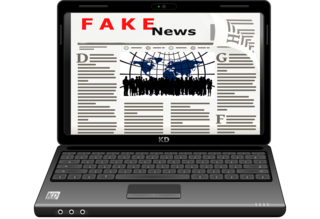Health
The Plural of Anecdote Is Misinformation
Many people can be wrong.
Posted November 18, 2020 Reviewed by Devon Frye

Many astute students of science are familiar with the oft-quoted quip, “The plural of anecdote is not data.” And for good reason. The quip is a warning: Personal health anecdotes carry with them many perils if they are to be used to inform health practices and policy.
In a post-truth era on social media, the plural of anecdote might be more accurately described as misinformation.
The idea that anecdotes confer low-quality scientific evidence is well established. Evidence-based health care providers are aware that there exists a hierarchy of evidence. While personal anecdotes are often a good starting point to generate research into the validity of health claims, an increasing number of anecdotes doesn’t strengthen the quality of evidence. Many people can be wrong. Anecdotes are not enough, especially when the scientific evidence base and theoretical rationale that underpins anecdotes have been thoroughly discredited by the broader scientific literature (e.g., in the case of Reiki and homeopathy).
It is perfectly understandable why many people fall victim to the luring illusory strength of anecdotal evidence. It is easy to confuse correlation with causation. Illusions of causality and control are very powerful personal experiences that can trick many into believing a false reality. Illusions of causality also lie at the heart of pseudoscience.
The field of cognitive psychology has explicitly taught us that we all have biases, which is why high-quality research is needed to support health claims. As physicist Richard Feynman famously made clear, “The first principle is that you must not fool yourself.”
And fool ourselves we do when we base health decisions or recommendations on anecdotal medical evidence. The reasons and problems are manifold. They include the statistical phenomenon of regression to the mean; the fact that most ailments improve on their own; the fact that many people use multiple treatments simultaneously, which confuses the precise source of symptom improvement; reporting biases; the cognitive phenomenon of confirmation bias; use of vague outcome measures; the placebo effect; and the fallibility of human memory.
Why does highlighting the perils of anecdotes matter?
The promotion of evidence-based health care practices and public health interventions is an ethical duty of health professionals and science communicators. The World Health Organization (WHO) declared the recent explosion of health-related misinformation as an “infodemic.” There are many interacting contributors to the spread of health-related misinformation and fake science news at the individual, group, and societal levels of analyses. Countless wellness gurus and alternative-medicine practitioners have pushed unproven therapies as ways to prevent and treat COVID-19.
Ultimately, anecdotes are an unreliable way to determine potential benefits and harms with respect to health claims. Worse, I have written about how they can be weaponized by bad actors to promote a pseudoscientific agenda. It is no coincidence that the use of testimonials by health care professionals is considered by most experts to be unethical, as they can easily reflect inaccurate advertising, in addition to other ethical concerns related to confidentiality and exploitation of power differentials.
One antidote to succumbing to the pitfalls of anecdotes is to improve critical thinking and science literacy. That is an evergreen sentiment. But in the midst of a pandemic, reliance on scientific expertise is especially paramount, as lives are at stake. To help prevent the spread of health-related misinformation, it's important to park the egos and politics that can elevate armchair conjecture, pseudoscience, and anti-science propaganda—as well as the anecdotes in which they're often propagated.


